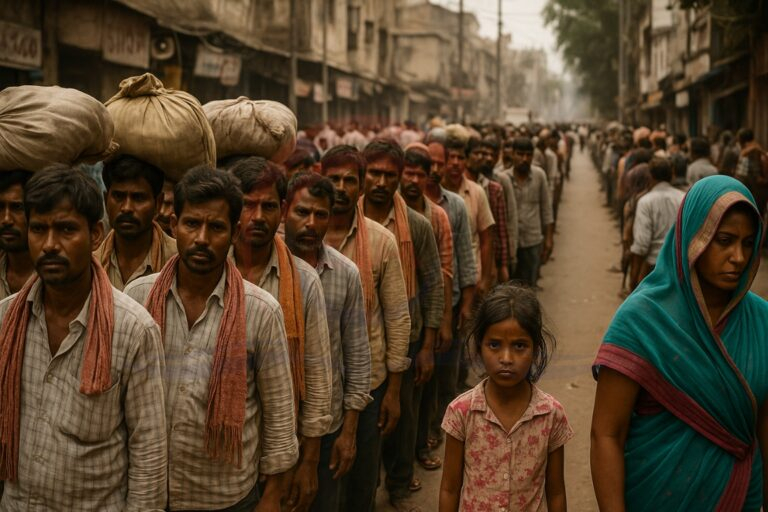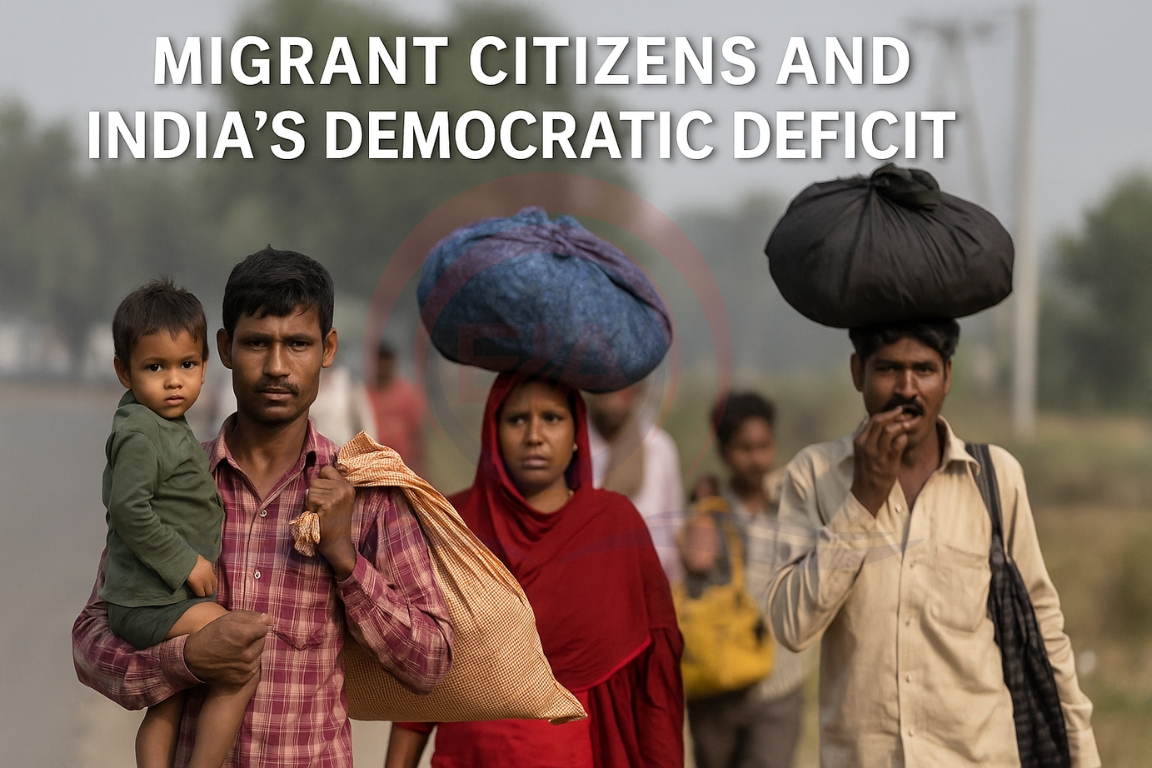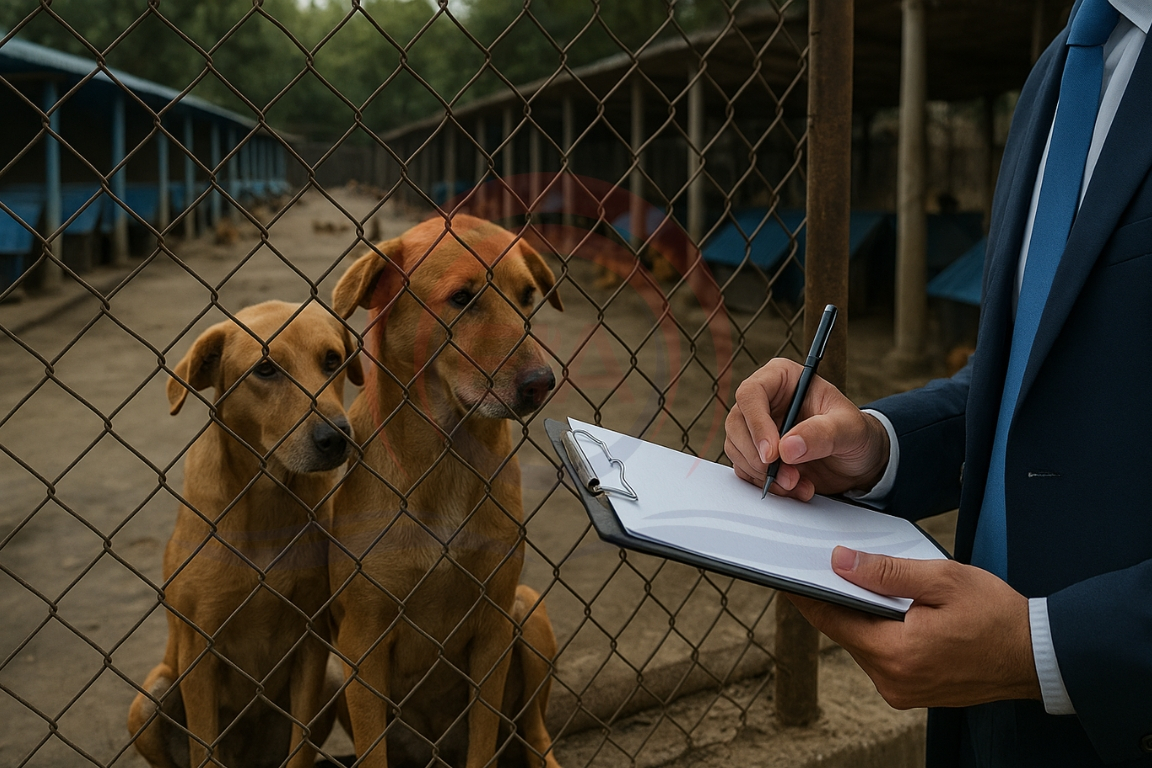Millions of migrant workers in Bihar have been removed from voter rolls during the Special Intensive Revision (SIR), with nearly 3.5 million names deleted. This move has raised concerns of large-scale disenfranchisement and highlighted the systemic challenges faced by migrants in exercising their voting rights.
Background
- India has over 1.4 billion people, and every vote is vital for democracy.
- In Bihar, where migration is a survival strategy, many families remain absent during verification, leading to mass deletions of voters labelled as “permanently migrated”.
- This creates a risk of permanent exclusion from both home and destination State electoral rolls.
Structural Issues in the Electoral System
Sedentary Citizen Assumption
- India’s voter registration relies on fixed residence proof and in-person verification.
- Migrants living in rented rooms, construction sites, or slums often lack such documentation.
- As a result, electoral processes exclude mobile and vulnerable populations.

Regionalism and Host-State Resistance
- Migrants are viewed as outsiders or potential threats to local jobs and politics.
- Demands for domicile-based job quotas discourage voter registration at destinations.
- Migrants remain unregistered in host States while being removed from home rolls.
Past Studies on Migrant Exclusion
- A 2015 TISS-ECI study showed migrants face a triple burden:
- Administrative barriers
- Digital illiteracy
- Social exclusion
- Found that higher migration correlated with lower voter turnout in source States like Bihar.
Impact of Voter Deletions
- Turnout Gap: Bihar’s average turnout is just 53.2%, among the lowest in India.
- Scale of Migration: Nearly 7 million Bihari migrants move annually, with 2.7 million returning home during festivals. Many will still be unable to vote due to deletions.
- Parallels with Welfare Access: Limited use of One Nation One Ration Card shows migrants’ dependence on home States for identity and entitlements.
- Gendered Concerns: Cross-border marriages along the India-Nepal border risk disenfranchising women due to strict documentation rules.
Challenges for Democracy
- The deletions reflect a bureaucratic approach that ignores India’s high internal mobility.
- Migrants are forced to choose between economic belonging in host States and political identity in home States.
- This undermines inclusivity and widens the democratic deficit.
Way Forward
- Develop portable and mobile voter identity systems to allow voting across States.
- Ensure cross-verification between origin and destination rolls instead of blanket deletions.
- Empower panchayats and local bodies to conduct migrant outreach and registration.
- Replicate Kerala’s migration survey model in high migration States like Bihar and Uttar Pradesh.
MAJOR MIGRANT INFLUXES IN INDIA
Partition of 1947
- Massive migration between India and Pakistan.
- About 14–15 million people crossed borders (Punjab, Bengal, Sindh).
- Refugees settled mainly in Delhi, Punjab, West Bengal, Assam.
Tibetan Migration (1959 onwards)
- After the Dalai Lama fled Tibet due to Chinese occupation.
- Thousands of Tibetans migrated to Himachal Pradesh (Dharamshala), Karnataka, Uttarakhand, Arunachal Pradesh.
Bangladesh Liberation War (1971)
- Influx of around 10 million refugees into West Bengal, Assam, Tripura, Meghalaya during the war.
Sri Lankan Tamil Migration (1983 onwards)
- Due to civil war and LTTE conflict in Sri Lanka.
- Many Tamil refugees moved to Tamil Nadu.
Kashmiri Pandit Exodus (1990s)
- Due to insurgency and militancy in Kashmir Valley.
- Thousands of Kashmiri Pandits migrated mainly to Jammu, Delhi, other parts of India.
Rohingya Migration (2012 onwards)
- Due to persecution in Myanmar’s Rakhine state.
- Many Rohingya Muslims entered India through Bangladesh, settled in Jammu, Hyderabad, Delhi, and Northeast states.
Economic Migration (Ongoing)
- Rural to urban migration within India for jobs.
- Example: Workers from Bihar, UP, Odisha, Jharkhand migrate to Delhi, Mumbai, Surat, Punjab, Kerala for construction, textiles, and agriculture.
Conclusion:
India risks witnessing its largest silent voter purge, not of adversaries but of poor migrant workers. To safeguard democracy, reforms must ensure that mobility does not cost citizens their most basic right, the right to vote.





